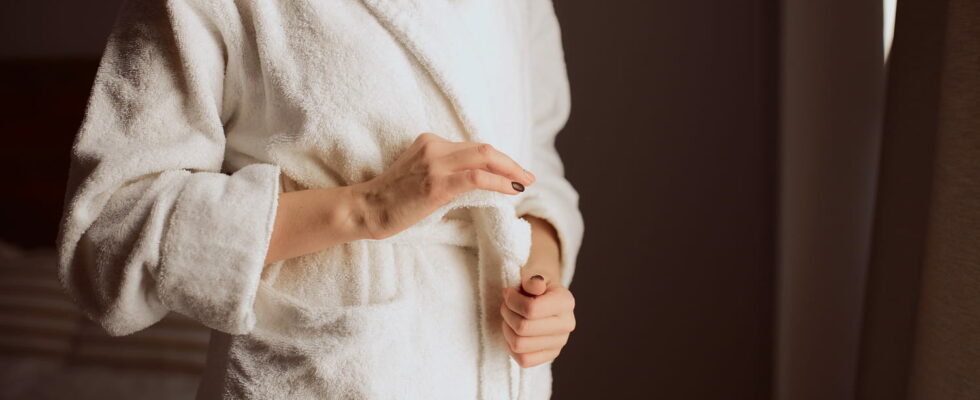“With age, the skin dries out and is no longer able to produce as much sebum as before” explains our dermatologist.
Hygiene habits and the frequency of showers are often debated. If socially in France, it is customary to wash every day, it is not necessarily necessary, or even it is “harmful for the skin” with a risk of dryness, irritation, skin allergy or eczema, dermatologists agree.
This is even more true as we get older. “The older you get, the more space you need to take between showers for the simple reason that over time, the skin dries out and is no longer able to produce as much sebum as before. Seniors have thinner, drier skin that is more tight and itchy than younger people.“, explains Dr Sylvie Meaume, dermatologist and Head of the Geriatric Wounds and Healing Department (AP-HP Rothschild). Concretely, when we clean ourselves with soap, we remove part of the protective hydrolipidic film of the skin which, with the age, has difficulty replenishing itself. Likewise, we eliminate the “good” bacteria and other micro-organisms which protect the skin.
“Be careful of the opposite effect and not fall into neglect of personal hygiene as you get older.“Maintaining good personal hygiene requires regular washing, showering or bathing, but also changing clothes and underwear.
From the age of 65-70, the ideal is, if possible, to rinse your body every day, but to use soap every third day without rubbing your skin too hard, which roughly amounts to taking 2 showers per week. If daily rinsing is not possible, it is nevertheless advisable to clean certain areas every day such as the armpits, between the toes and private parts. In addition, you should avoid washing with very hot water and prefer lukewarm water, avoid showers that are too long (3 to 4 minutes is enough depending on the Harvard Medical School researchers), avoid products containing surfactants (mark on the label: sulfates, polyethylenes, acids, sodium, etc.) and prefer shower oils, dermatological bars or fatty soaps. Dry thoroughly by dabbing the skin with a towel, rather than rubbing. Obviously, all these recommendations must be adapted according to the season, the weather, the skin type, the activities practiced, the state of health and the autonomy of the person.
